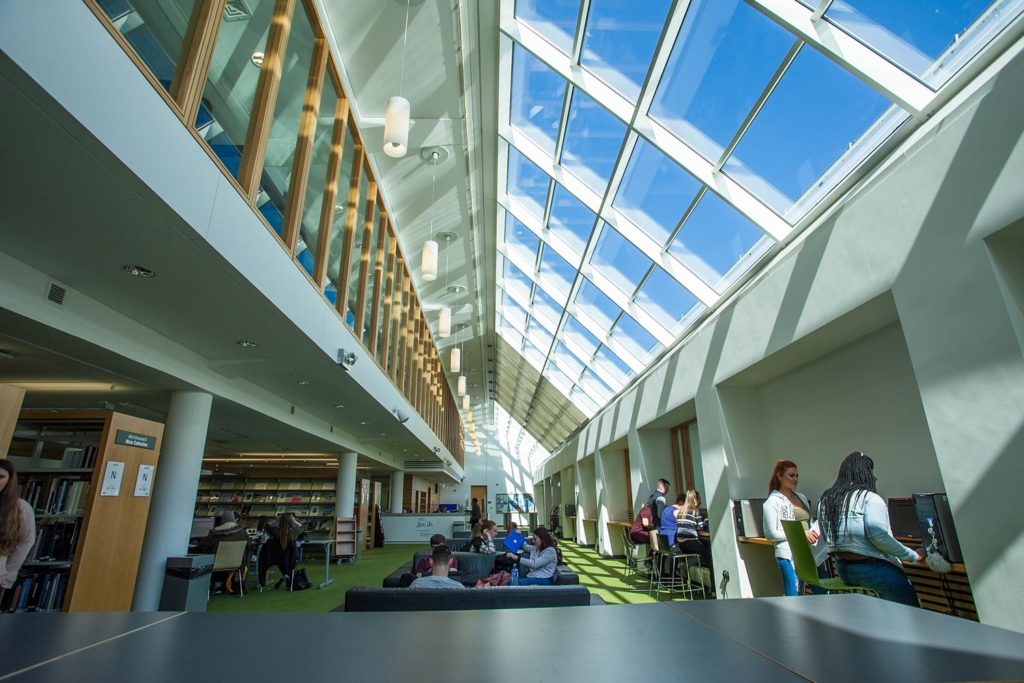Home » International » Visa and Immigration
Visa and Immigration
Learn more about applying for a visa, registering with immigration, medical insurance requirements and working in Ireland as a student.
This information is intended a a guide only. The Irish Immigration Services is the primary source of information about visa and immigration matters for Ireland.
Visas
If you are a Non-EU student, you may need to apply for a study visa before travelling to Ireland.
Students from many Non-EU countries will need to apply for a study visa before travelling to Ireland.
You can check if you need a study visa on the Irish Immigration Services webpage.
Guidance on how to apply for a visa, the documentation required and the applications fees is available on the Irish Immigration Services webpage.
You can normally apply for a visa up to 3 months before your course start date.
It can take up to 8 weeks to get a visa.
You should apply early because students are required to arrive on campus in time for the beginning of term.
Further information is available on the Irish Immigration Services webpage.

Registering with Immigration
Non-EU students must register with immigration within 90 days of arriving to Ireland. This is how your immigration permission is recorded and how you get your Irish Residence Permit (IRP). You will need to renew your registration for each year of your academic studies.

To register with immigration (or renew your registration), you will need to book an appointment at your local registration office.
You must bring the correct documentation and the registration fee to your appointment.
After you have registered, your IRP card will be posted to you.
Students completing an undergraduate degree, postgraduate masters or PhD will need to provide the following documentation:
- Passport
- Letter of Registration/Attendance from ATU Sligo confirming you are an enrolled student. (You can request this online here)
- Tuition Fee Receipt (or a sponsorship letter if you are a fully sponsored student)
- Private Medical Insurance
- Proof of Financial Support. If you did not require a visa to travel to Ireland, you will need to provide evidence of direct access to €4500 if you will be staying in Ireland for more than 6 months. There are 4 different types of documentation that will be accepted for confirming your financial support.
Further information is available on the Irish Immigration Services webpage.
The cost to register is €300.
This must be paid by debit or with credit card.
If you are living in Sligo, your local registration office is the Sligo Garda Station. You can make an appointment by emailing sligo.immigration@nullgarda.ie.
Sligo Garda Station is located at Sligo Garda Station, Pearse Road, Sligo, F91 E372. This is approximately a 25 min walk from ATU Sligo campus.
If you are living in a different part of Ireland, you can locate your nearest registration office on the Irish Immigration Services webpage.
After you successfully register with immigration, you will receive your Irish Residence Permit (IRP).
Your IRP will detail the type of immigration permission you have.
There are different types of immigration permission. Each permission type has a stamp number. The stamp number indicates what type activities you can and cannot do in Ireland. You should understand the conditions of your immigration permissions/stamp number. Permission to study on a full time degree is indicated by Stamp 2.
You can learn more about IRP cards, immigration permissions and stamps on the Irish Immigration Services webpage.
You will need to renew your registration for each year of your academic studies.
The renewal process is very similar to first time registration. You will need to make an appointment at your local registration office, bring the correct supporting documentation and pay the registration fee.
Your IRP card will have an expiry date. You must renew your registration before it expires.
Further information is available on the Irish Immigration Services webpage.
Guidance about Registering with with Immigration is also provided to new students during Induction.
Medical Insurance
Non-EU students are required to have private medical insurance for their time in Ireland for visa and immigration purposes. Students are responsible for purchasing, and renewing, their own health insurance.
Your medical insurance must meet the requirements of the Irish Immigration Service. It should also meet your own health requirements.
Different providers will offer different levels of insurance. It is important that you check the insurance details carefully to ensure it meets your requirements.
Some of the companies in Ireland that offer medical insurance are listed below. This is not an exhaustive list and it is the responsibility of students to choose and purchase their own policy.
Students from the EU who have a valid European Health Insurance Card (EHIC) can access public health services in Ireland.
Please be aware that the EHIC does not provide access to private health services in Ireland.
Students should apply for their EHIC card before travelling to Ireland.
Information about using an EHIC card in Ireland is available here.

Working in Ireland
Non-EU students with valid Stamp 2 immigration permission may work in casual employment subject to certain conditions.

Non-EU students with a valid Stamp 2 immigration permission may work in casual employment for up to 20 hours per week during term time and up to 40 hours per week during holidays.
Further information about what activities you can do in Ireland with Stamp 2 immigration is available on the Irish Immigration Services webpage.
If you are offered employment during your studies, you will need to apply for a Personal Public Service Number (PPSN).
This is a unique reference number that is used by Irish state departments including Revenue.
PPSN applications are managed by the Department of Social Protection.
You can apply for an PPSN online. Further information is available on the Government of Ireland website.
Third Level Graduate Scheme (Stamp 1G)
The Third Level Graduate Scheme provides Non-EU/EEA graduates with an opportunity to remain in Ireland for a specific period of time for the purpose of seeking graduate level employment.
The scheme is open to students who have studied in Ireland and successfully completed a qualification at NQF Level 8, 9 or above. This includes Bachelor Honours Degrees, Masters and PhDs.
To be eligible for the scheme graduates must meet the eligibility criteria listed on the Irish Immigration Service.
You can apply after your have completed your degree and received your final results.
You must book an appointment at your local registration office. You must bring all supporting documentation and your registration fee to your appointment
Further information is available here.
